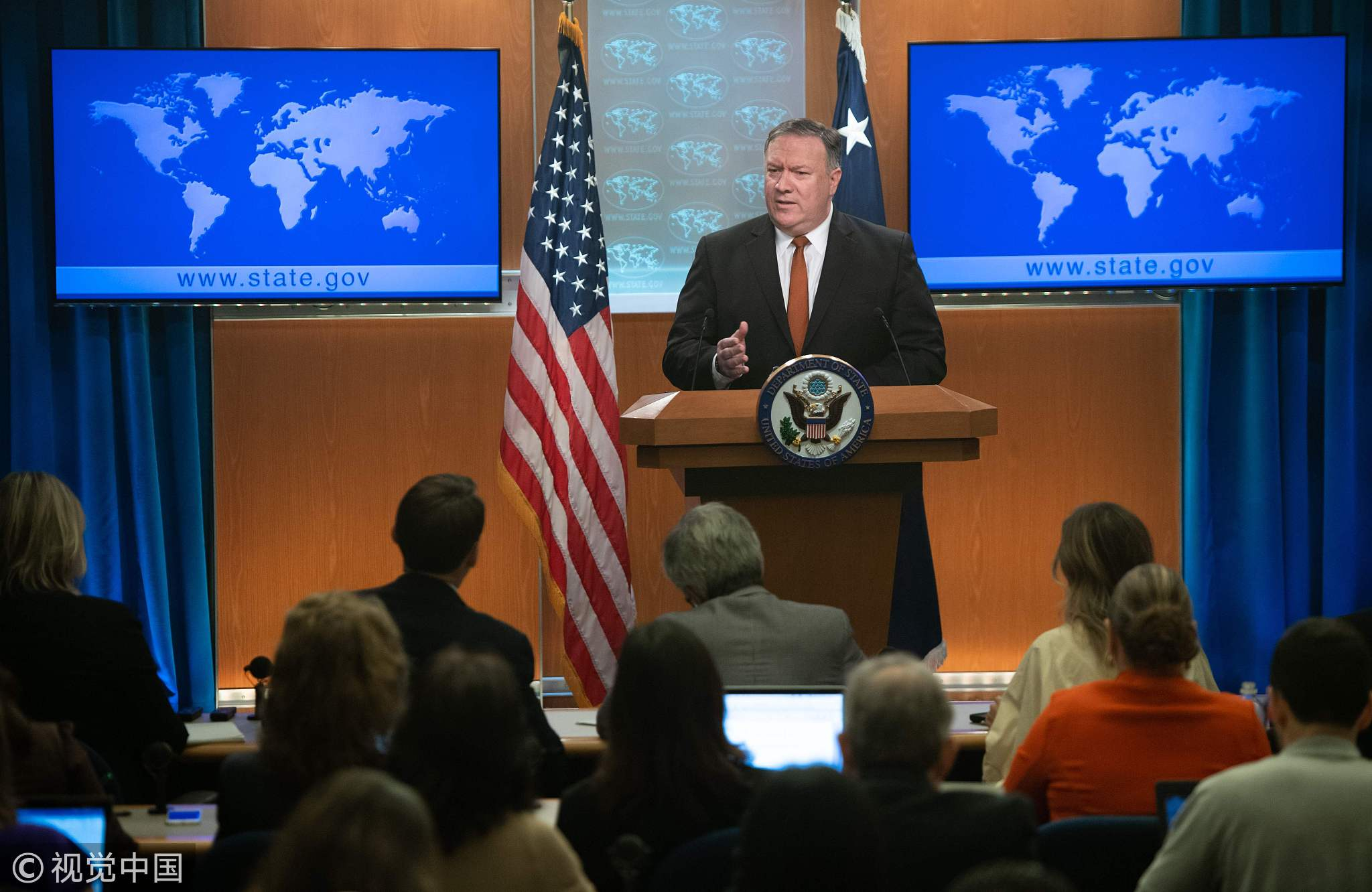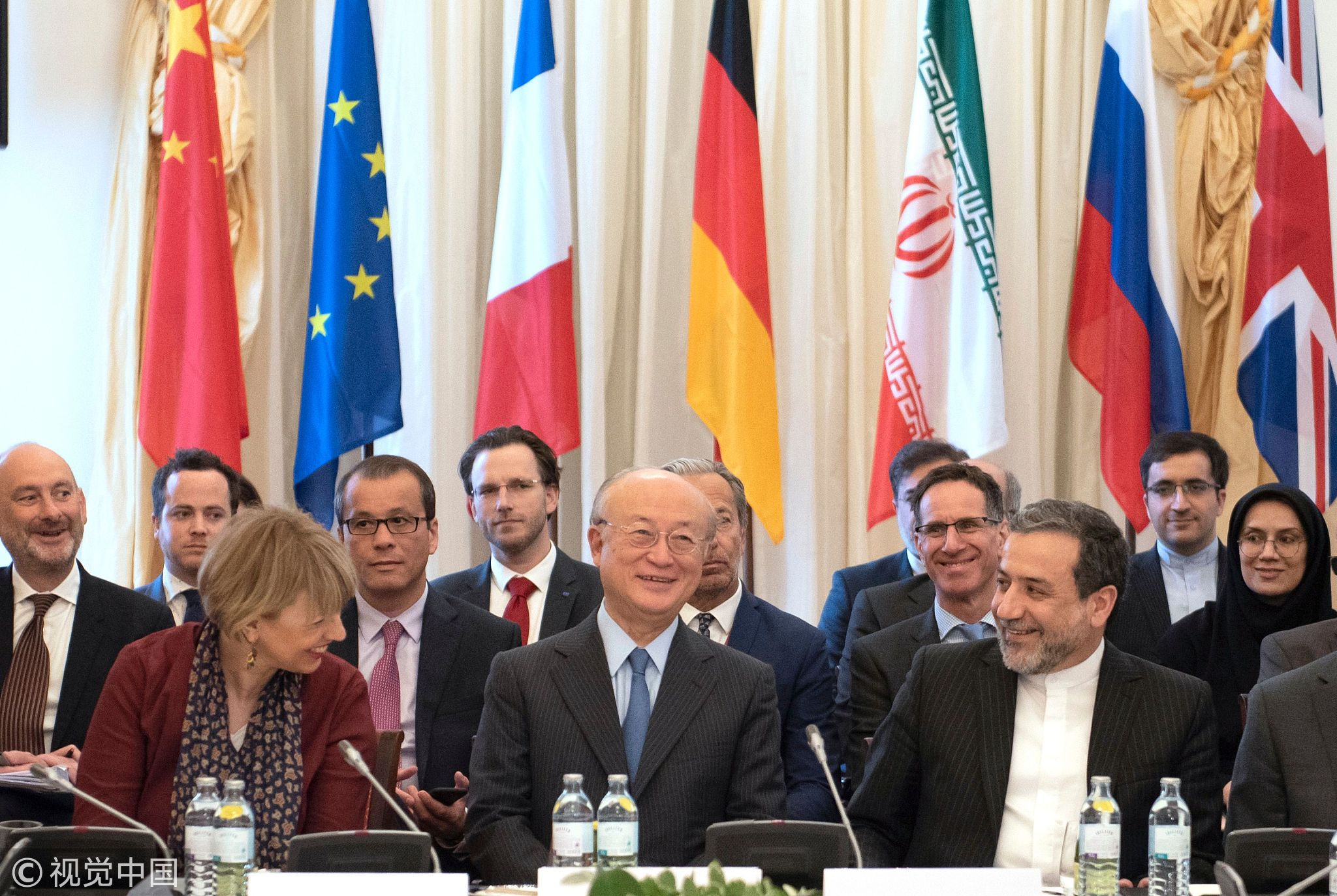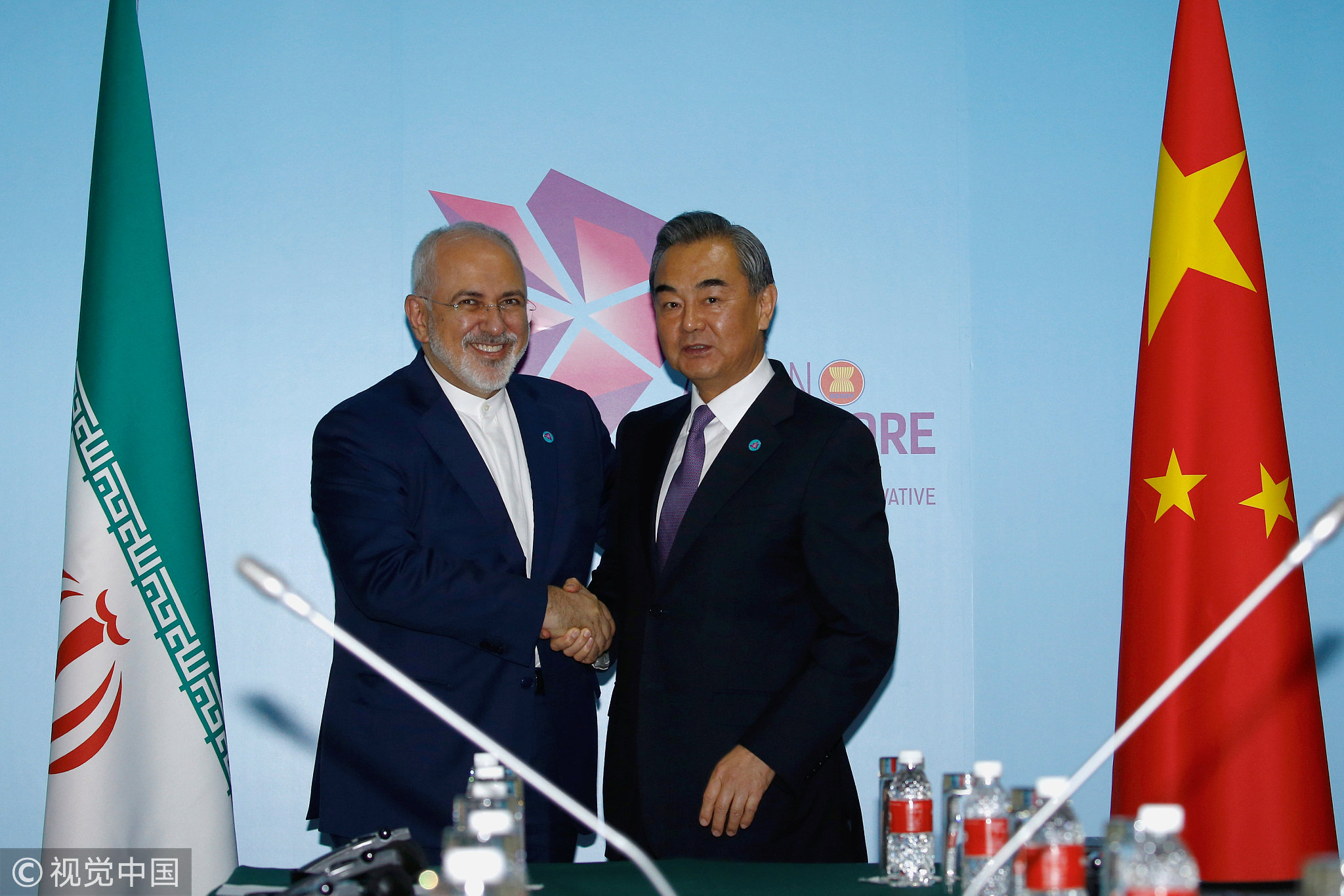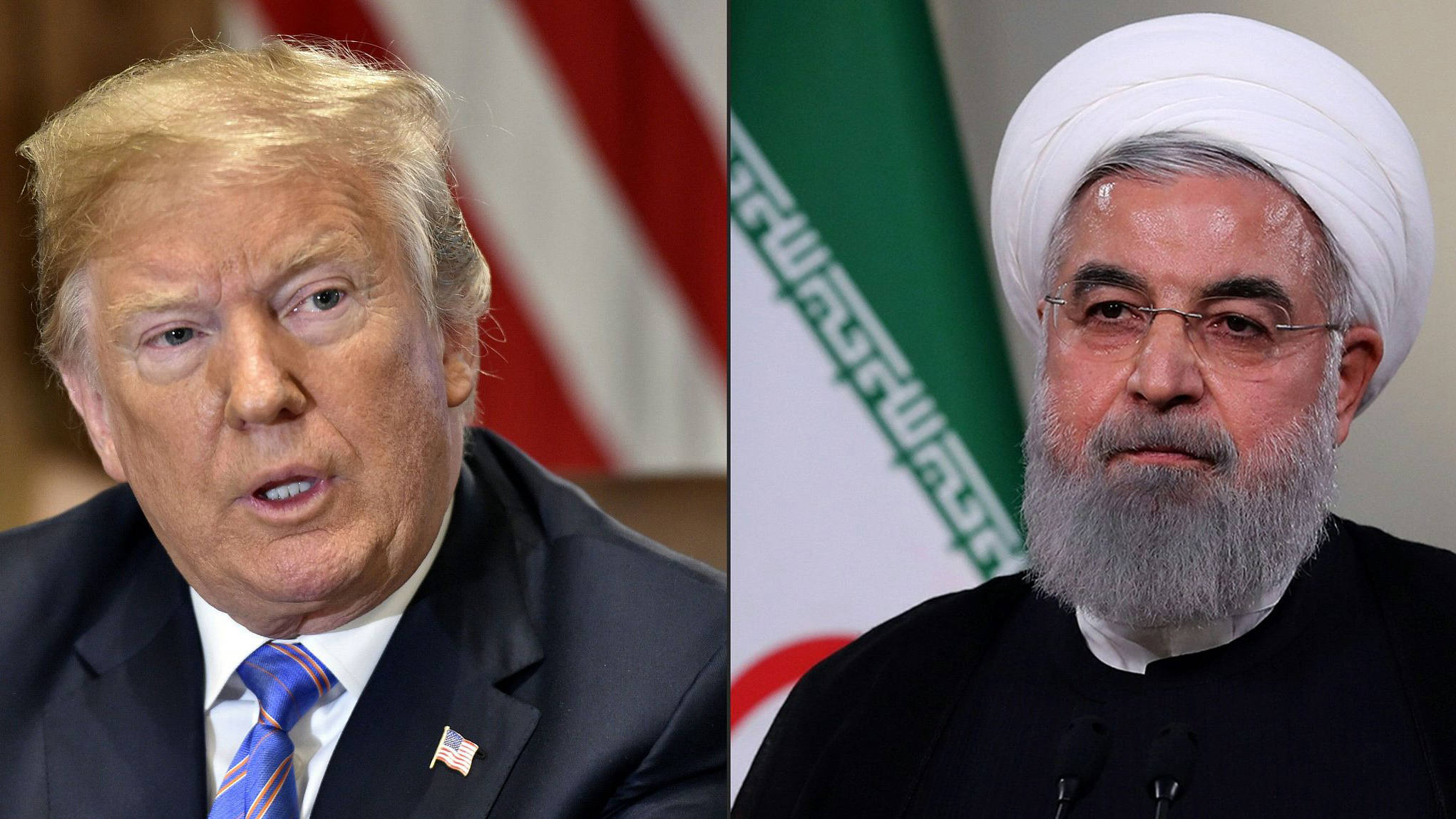Editor's note: Ghanbar Naderi is an Iranian columnist and political commentator. The article reflects the author's opinion, and not necessarily the views of CGTN.
US Secretary of State Mike Pompeo is way out of line for criticizing his predecessor, John Kerry, for meetings with Iranian officials in backchannel talks.
Pompeo is deadly wrong to accuse Kerry of "actively undermining" the Trump administration's policy toward Tehran as well. The so-called "unseemly and unprecedented" and "beyond inappropriate" behavior by the political class in Washington has been there for years. Pompeo can find precedent for this in recent US history.

US Secretary of State Mike Pompeo speaks during a press conference at the State Department in Washington, DC, September 14, 2018. /VCG Photo
US Secretary of State Mike Pompeo speaks during a press conference at the State Department in Washington, DC, September 14, 2018. /VCG Photo
A temporary US ally
Iran was more or less a temporary US ally in 2002 – when former president George W. Bush named Iran, the Democratic People's Republic of Korea (DPRK) and Iraq as part of "an axis of evil."
Up until that moment and despite the tortured relationship and the dominant climate of profound distrust if not outright hostility, Iran was cooperating with the US on the border of Afghanistan.
It was immediately after the September 11 attacks on US soil that the enemy of my enemy Iranian and American interests dovetailed in Afghanistan. Like the US, Iran viewed the Taliban as a threat. Then by being included in the axis of evil, Bush turned Tehran in a completely different direction.
To say Iran and America ally in the same breath might draw ridicule and angry tweets from President Donald Trump and his Secretary of State Pompeo. But this is historical ignorance.
Tehran further helped Washington with Al-Qaeda as this fit with Iran's interests. Iran gave no harbor to members of the terrorist organization. It turned Al-Qaeda operatives out of the country, copied the passports of those operatives and sent them to the United Nations where they were handed over to the US government. But whatever overtures Iran made at that moment were met with hostile reply from the Bush administration.

Secretary-General of the European Union External Action Service (EEAS) Helga Schmid, Director-General of the International Atomic Energy Agency (IAEA) Yukiya Amano and political deputy at the Ministry of Foreign Affairs of Iran Abbas Araghchi attend a special meeting of the Joint Commission of parties to the JCPOA (Joint Comprehensive Plan of Action) on Iran's nuclear deal at Coburg palace in Vienna, Austria, May 25, 2018. /VCG Photo
Secretary-General of the European Union External Action Service (EEAS) Helga Schmid, Director-General of the International Atomic Energy Agency (IAEA) Yukiya Amano and political deputy at the Ministry of Foreign Affairs of Iran Abbas Araghchi attend a special meeting of the Joint Commission of parties to the JCPOA (Joint Comprehensive Plan of Action) on Iran's nuclear deal at Coburg palace in Vienna, Austria, May 25, 2018. /VCG Photo
A clandestine agreement
After the US-led invasion of Iraq in 2003, American and Iranian officials agreed to meet secretly in Oman and Europe, using military planes, side entrances and service elevators to conceal their efforts to lay the ground for the 2015 nuclear agreement.
The secret talks went ahead for several years with the wary approval of Iran's leader Ayatollah Ali Khamenei, who was skeptical of the US, but agreed to all the meetings taking place.
The contacts, reported in detail by western media and confirmed by US officials and the International Atomic Energy Organization, helped to bring about a deal between Iran and six world powers – Britain, China, France, Germany, Russia and the United States, known as the P5+ – that ended a decade-long dispute over Tehran's nuclear program.
The path to that pact paved the way for a series of secret meetings too – personally authorized by Obama – between top State Department, White House and Iranian government officials to help end or discuss the conflicts in Iraq, Syria and Yemen. Key Americans involved in these efforts were William Burns, the US deputy secretary of state, Jake Sullivan, the national security adviser to former vice president Joe Biden, and Kerry himself who nurtured the Oman channel.
On march to salvage diplomacy
Last year during a peace forum in Oslo, Norway, and with European Union foreign policy chief Federica Mogherini on board, Kerry and Iran's Foreign Minister Mohammad Javad Zarif voiced support for the nuclear deal, technically known as the Joint Comprehensive Plan of Action (JCPOA). Early this year in New York, Kerry and Zarif met again at the UN to discuss ways of saving the Security Council-endorsed pact that President Trump walked away from. It was the second meeting between the two on the matter in the span of two months.
Zarif met with a number of top EU officials as well as his Chinese and Russian counterparts Wang Yi and Sergei Lavrov. He didn't discuss the issue with any Trump administration officials. After all, “the US is not just the current ruling administration,” and John Bolton, Trump's national security adviser, wants "to strangle the International Criminal Court in its cradle."

Iran's Foreign Minister Mohammad Javad Zarif and China's Foreign Minister Wang Yi shake hands at a bilateral meeting on the sidelines of the ASEAN Foreign Ministers' Meeting in Singapore, August 3, 2018. /VCG Photo
Iran's Foreign Minister Mohammad Javad Zarif and China's Foreign Minister Wang Yi shake hands at a bilateral meeting on the sidelines of the ASEAN Foreign Ministers' Meeting in Singapore, August 3, 2018. /VCG Photo
Of war and negotiation
Given the history above and reading the tea leaves, top Iranian and American officials, former and current, will meet again to resolve their disputes through negotiations. They have to. This will include resolving the instability in Iraq, Afghanistan, Syria and Yemen, and the security situation in the Persian Gulf.
Even Trump himself has asked to meet with President Hassan Rouhani. It illustrates a US desire, in the face of a difficult and tortured history, to explore whether there might be a way to reconcile two nations.
The approach to mediation practice and dialogue that appears to be taking hold in Europe and the UN reflects, dignifies and furthers this reality. While Kerry and Zarif may have taken a few setbacks from Trump for whom war has an allure that gives him an ingrained advantage over negotiation, they are well on their way to developing their own unique and effective approach to successful conflict resolution.
In the same way, China, Russia and the EU acknowledge the value of such diplomacy. They support the talks and have taken the best of diplomatic practice without feeling obliged to imbue it with transformational properties.
(If you want to contribute and have specific expertise, please contact us at opinions@cgtn.com.)





